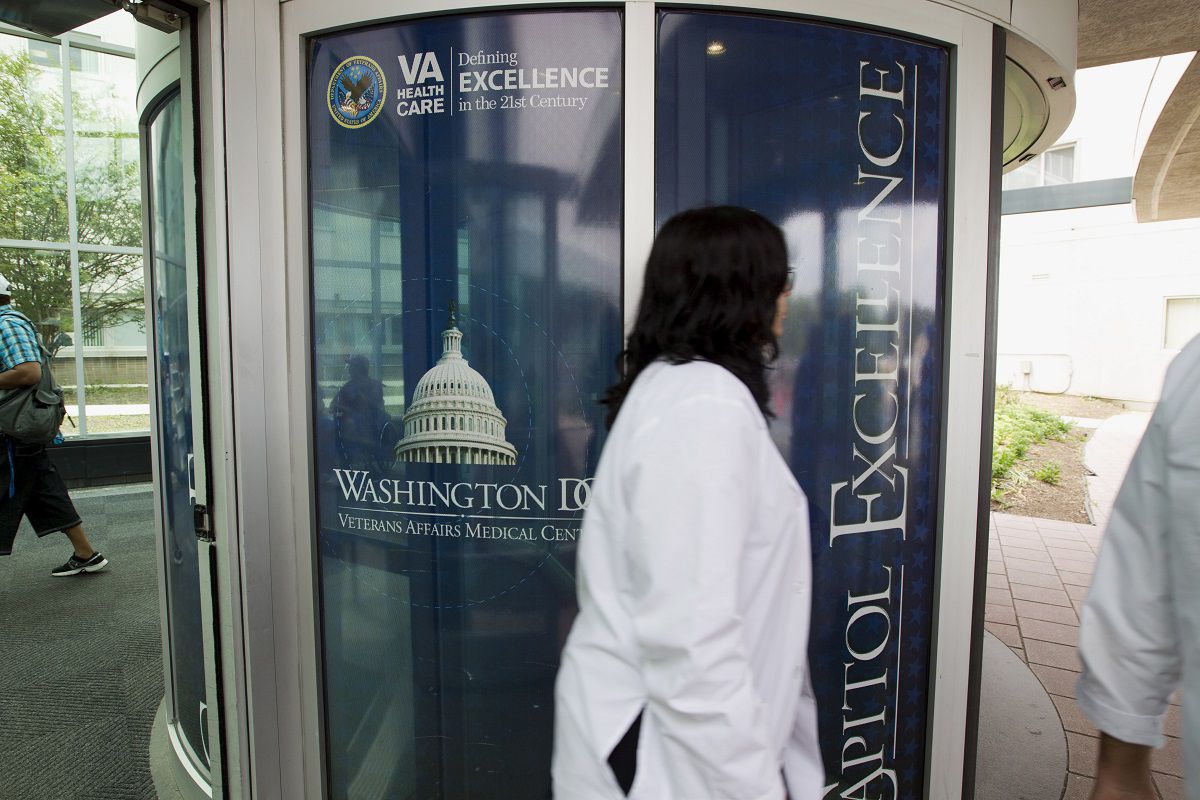The Department of Veterans Affairs would see its lowest increase in program spending in nine years under the federal budget plan outlined by the White House on Thursday, but mandatory benefits spending would jump by more than 12% to cover the costs of new toxic exposure care approved by Congress last year.
Altogether, total department spending would top $320 billion in fiscal 2024 under the plan, part of a nearly $1.7 trillion proposal for federal operations next year. Administration officials said the draft will allow VA leaders to “honor America’s commitment to veterans, servicemembers, families, caregivers, and survivors.” Specific priorities and purchases of the full federal spending plan will not be unveiled until next week.
The annual unveiling of the White House budget is essentially a sum-up of any administration’s goals, many of which are unlikely to survive passage through Congress, the body that actually votes on and passes government appropriations. This latest proposal is expected to face intense debate in coming months, as Republicans and Democrats argue over proposed tax increases and program expansions included in President Joe Biden’s plan.
RELATED
:quality(70)/cloudfront-us-east-1.images.arcpublishing.com/archetype/3FB4QTGQRBFBFNLYPZUUFDMERY.jpg)
Thursday’s release sets the parameters for that debate, over VA and other spending, and shows the administration’s continued support for boosting budget authority for veterans programs.
The proposal calls for $137.9 billion in VA discretionary budget spending next fiscal year, a boost of about 2.2%.
Last year, that non-mandatory department spending saw an increase of about 19%. The discretionary budget boost has only been below 2.2% once in the last 11 years, in fiscal 2016.
Still, administration officials insist the modest increase in spending is enough to keep pace with VA programming needs. The total includes $3.1 billion for veterans homelessness prevention programs, $2.4 billion for caregiver support programs, and $1 billion for women-specific health care initiatives, all increases over current funding levels.
The White House is also asking for a $20.3 billion boost in budget authority to help cover military toxic exposure disability claims. That would be added to the department’s mandatory spending totals, along with other costs like support stipends and education payouts.
The extra money is needed to help cover the costs of the Promise to Address Comprehensive Toxics Act (better known as the PACT Act) signed into law last summer.
The legislation provides for presumptive benefit status for 12 types of cancer and 12 other respiratory illnesses linked to burn pit exposure in the Gulf War, the War in Afghanistan and the War in Iraq; hypertension and monoclonal gammopathy of undetermined significance (MGUS) for veterans who served in Vietnam; and radiation-related illnesses for veterans who served in several new locations in the 1960s and early 1970s.
More than 200,000 veterans have applied for benefits under the new law since last fall. As many as one in five living veterans in America today could see new medical or disability benefits as a result of the legislation.
RELATED
:quality(70)/cloudfront-us-east-1.images.arcpublishing.com/archetype/SMGKTQKVYJBSRKYPQIP3BOG2VM.jpg)
While the increase in the VA budget is modest, percentage-wise, the proposal still translates into another significant boost in department spending. In fiscal 2014, the entire annual VA budget totaled roughly $154 billion. Ten years later, the White House plan of $320 billion in fiscal 2024 is more than double that total.
Hearings on the VA spending specifics are expected to begin later this month. Reaching a final budget compromise will likely take until the end of the year and could drag into 2024 if political negotiations between Republicans and Democrats are unsuccessful.
VA does have much of its operating budget approved a year early, thanks to advance appropriations language added to the federal budget several years ago. If a government shutdown over GOP objections to Biden budget plans is triggered this fall, VA hospitals and most other support services would stay open into ficsal 2024 despite the funding lapses.
Leo covers Congress, Veterans Affairs and the White House for Military Times. He has covered Washington, D.C. since 2004, focusing on military personnel and veterans policies. His work has earned numerous honors, including a 2009 Polk award, a 2010 National Headliner Award, the IAVA Leadership in Journalism award and the VFW News Media award.

